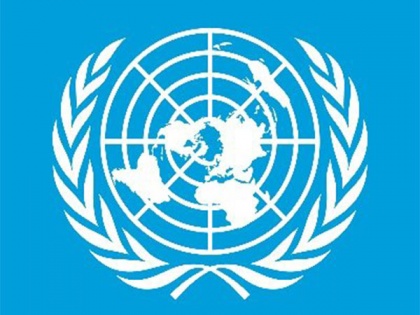"Vocational training" programmes in China threaten Tibetan identity, carry risk of forced labour, say UN experts
By ANI | Published: April 27, 2023 06:58 PM2023-04-27T18:58:28+5:302023-04-27T19:00:10+5:30
Geneva [Switzerland], April 27 : UN experts on Thursday expressed concern over allegations that so-called "labour transfer" and "vocational ...

"Vocational training" programmes in China threaten Tibetan identity, carry risk of forced labour, say UN experts
Geneva [Switzerland], April 27 : UN experts on Thursday expressed concern over allegations that so-called "labour transfer" and "vocational training" programmes in the Tibet Autonomous Region of China are being used as a pretext to undermine Tibetan religious, linguistic and cultural identity to monitor and politically indoctrinate Tibetans, and warned that such programmes could lead to situations of forced labour.
"Hundreds of thousands of Tibetans have reportedly been 'transferred' from their traditional rural lives to low-skilled and low-paid employment since 2015, through a programme described as voluntary, but in practice their participation has reportedly been coerced," the UN experts said.
They noted that the labour transfer programme is facilitated by a network of 'vocational training centres', which focus less on developing professional skills and more on 'cultural and political indoctrination in a militarised environment.'
The experts found that Tibetans in the programme are reportedly prevented from using the Tibetan minority language and discouraged from expressing their religious identity, both considered obstacles to poverty alleviation by the authorities.
Contrary to the programme's purported focus on improving living conditions, they said that the labour transfer programme could further impoverish Tibetans and lead to forced labour.
"Tibetans are being drawn away from sustainable livelihoods in which they have traditionally had a comparative advantage, such as wool and dairy production, and into low-paid, low-skilled work in manufacturing and construction," the experts said.
"Tibetans are transferred directly from training centres to their new workplaces, leaving it unclear whether they are consenting to this new employment. There is no oversight to determine whether working conditions constitute forced labour," the experts said.
They raised concerns that "vocational training" programmes were designed to promote a non-plural, mono-racial and mono-ethnic nation, in violation of the prohibition of racial discrimination under international human rights law. "The Chinese Government has an obligation to dismantle such discriminatory ideas and practices," they said.
The experts called on the authorities to clarify the measures in place for Tibetans to opt out of vocational training and labour transfer programmes, to monitor the working conditions of Tibetans in their new places of employment, and to ensure respect for Tibetan religious, linguistic and cultural identity.
They urged the Chinese Government to explain the steps it intends to take to comply with its international obligations to prevent forced labour and trafficking, and to ensure access to remedy and compensation for victims of such practices.
The experts have received an initial response from the Government of China and remain in contact regarding these issues.
Disclaimer: This post has been auto-published from an agency feed without any modifications to the text and has not been reviewed by an editor
Open in app